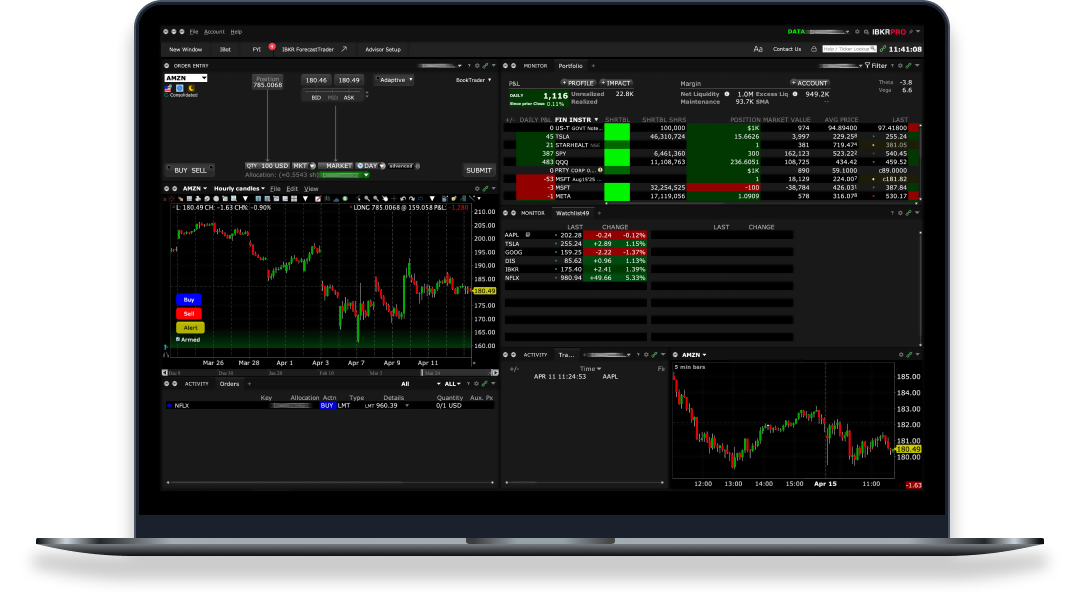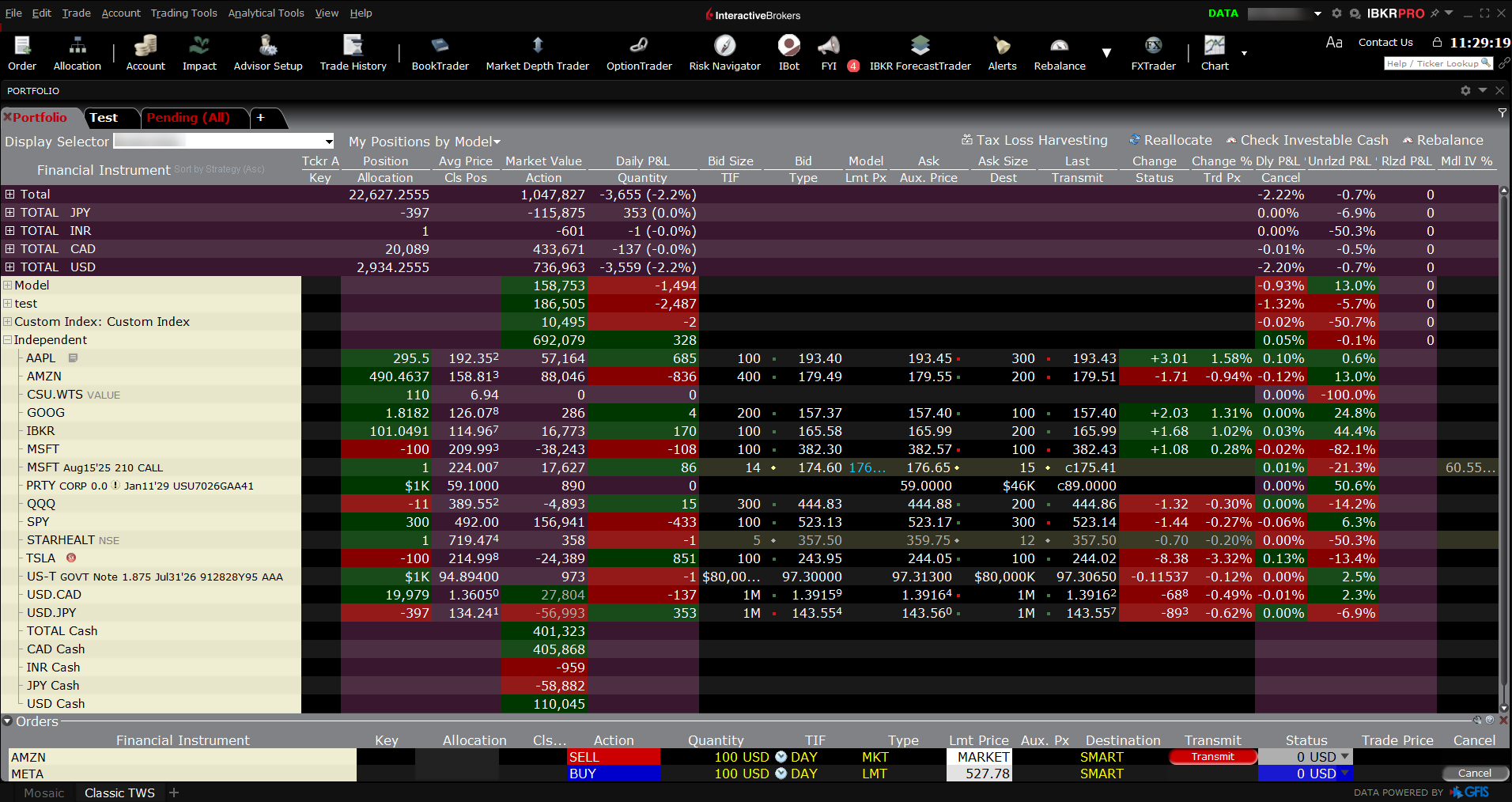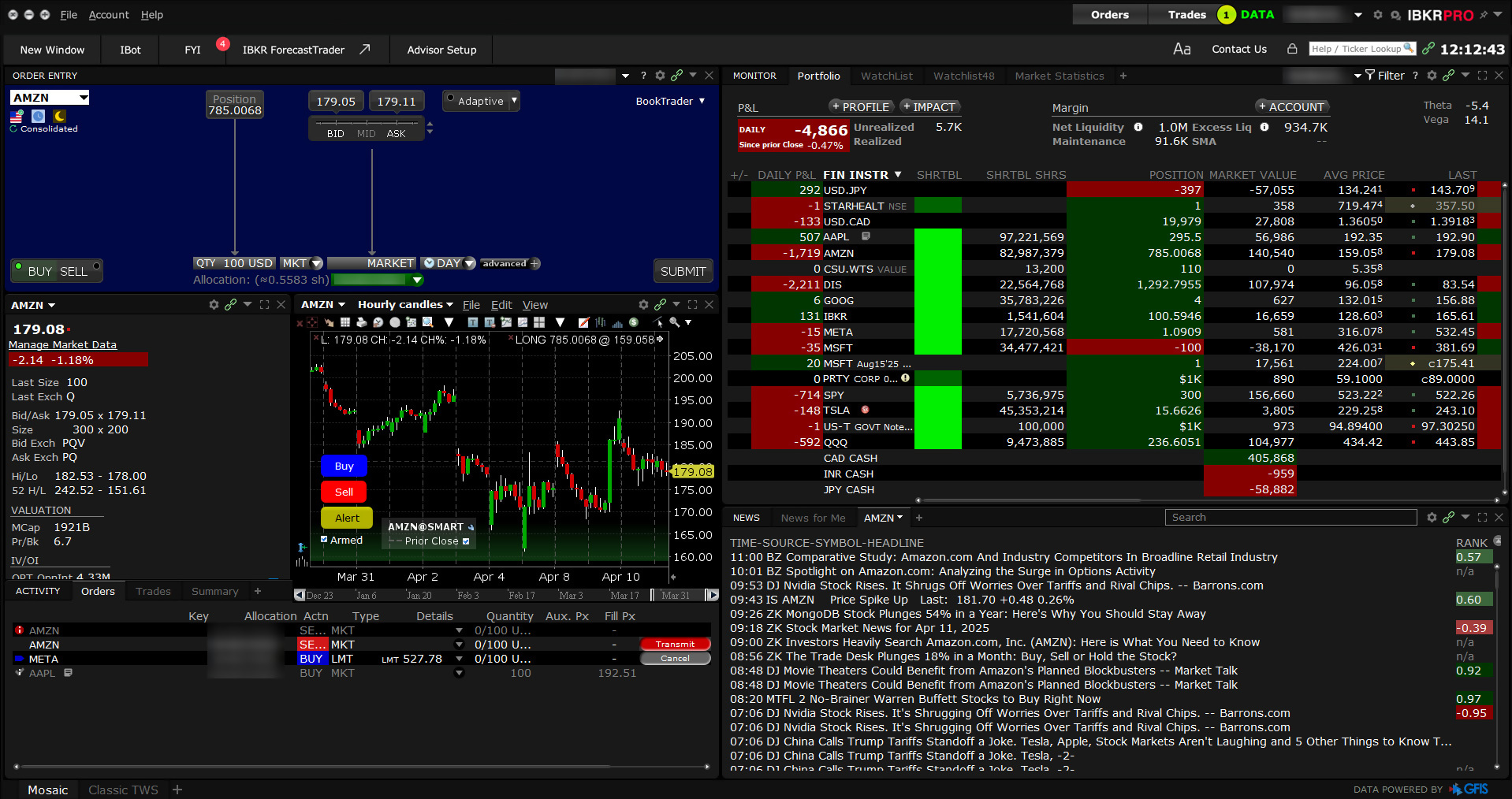IBKR gives you two choices: pay zero commissions but get mediocre execution (IBKR Lite), or pay small fees and get professional-grade tools that'll make you want to quit trading for the first month (IBKR Pro). Here's which one will make you less miserable.

IBKR Lite: For People Coming From Robinhood
IBKR Lite is IBKR's answer to Robinhood - zero commissions on stocks and ETFs, options at $0.65 per contract. The mobile app won't make you cry (unlike TWS), and you can trade immediately without learning 47 different order types.
What you get:
- Free stock and ETF trades
- Decent mobile app that doesn't crash every time the market moves
- Access to international markets (unlike Robinhood)
- Paper trading to practice without losing real money
The catch: Your orders get sold to market makers (payment for order flow). This means slightly worse fills, but unless you're trading huge sizes, you won't notice. Robinhood does the same thing, so you're not losing anything by switching.
IBKR Pro: The Boeing Cockpit of Trading Platforms
IBKR Pro is for serious traders who need more than Robinhood's Fisher-Price interface. You'll pay tiny commissions ($0.005/share, $1 minimum) but get professional-grade execution and tools that'll take you months to figure out.
What it costs:
- Half a cent per share (minimum $1 per trade)
- Options from 15 cents to 65 cents per contract
- International trades at local rates (not the $25-50 rape most brokers charge)
What you get for suffering through the learning curve:
- TWS platform that looks like a 1995 terminal but processes 2.5 million trades daily
- 100+ order types including TWAP, VWAP, and advanced algos (you'll use maybe 5 of them)
- Direct market access to 160+ markets worldwide - your orders bypass market makers
- Real-time Portfolio Margining and Risk Navigator that prevent account liquidation
- Multi-monitor charts with 100+ technical indicators that stay responsive during 2008-level volatility
The TWS interface looks ancient but it's built for speed and functionality over pretty graphics. Every pixel serves a purpose.
Does It Actually Work When You Need It?
The platform stays up when others crash. During the March 2020 meltdown, IBKR kept working while Robinhood died and left people unable to sell. TWS handled the GameStop madness in 2021 without a hiccup.
Your orders fill well - IBKR's execution reports show they beat the posted prices on most trades. More importantly, when you hit "buy," something actually happens instead of getting an error message.
The downside: TWS can get laggy during extreme volatility, and the mobile app sometimes logs you out at exactly the wrong moment for "security." But it's still more reliable than anything newer and shinier.
How Long Before You Stop Hating It?
IBKR Lite: You can trade within hours. It's basically a better version of Robinhood with international access and fewer outages.
IBKR Pro: Plan to hate your life for a month while learning TWS. The interface makes no sense until suddenly it does. Expect this timeline:
- First week: Confusion and rage
- First month: Grudging respect for the power, continued rage at the interface
- First year: You understand why professionals use this ancient-looking thing
Learning resources that actually help:
- Skip the official tutorials - find YouTube videos from real traders who've suffered through this
- IBKR Campus has 80+ courses, though most are way more detailed than you need
- Paper trading is mandatory - you WILL make expensive mistakes otherwise
- The TWS user communities on Discord are where people share actual workflows and complain about bugs
- Trading forums like EliteTrader have advanced strategies once you're past the basics
- The official documentation will save you when you're stuck at 2am wondering why your order didn't work
Bottom line: IBKR Lite if you want simple, IBKR Pro if you're willing to suffer for better tools and lower costs. There's no middle ground.
But knowing which IBKR version to choose is just the first decision. The bigger question is whether IBKR makes sense at all compared to traditional brokers like Schwab and Fidelity. The answer isn't obvious - while IBKR wins on costs and features, it loses badly on user experience and customer support. Let's see how the numbers actually stack up.

